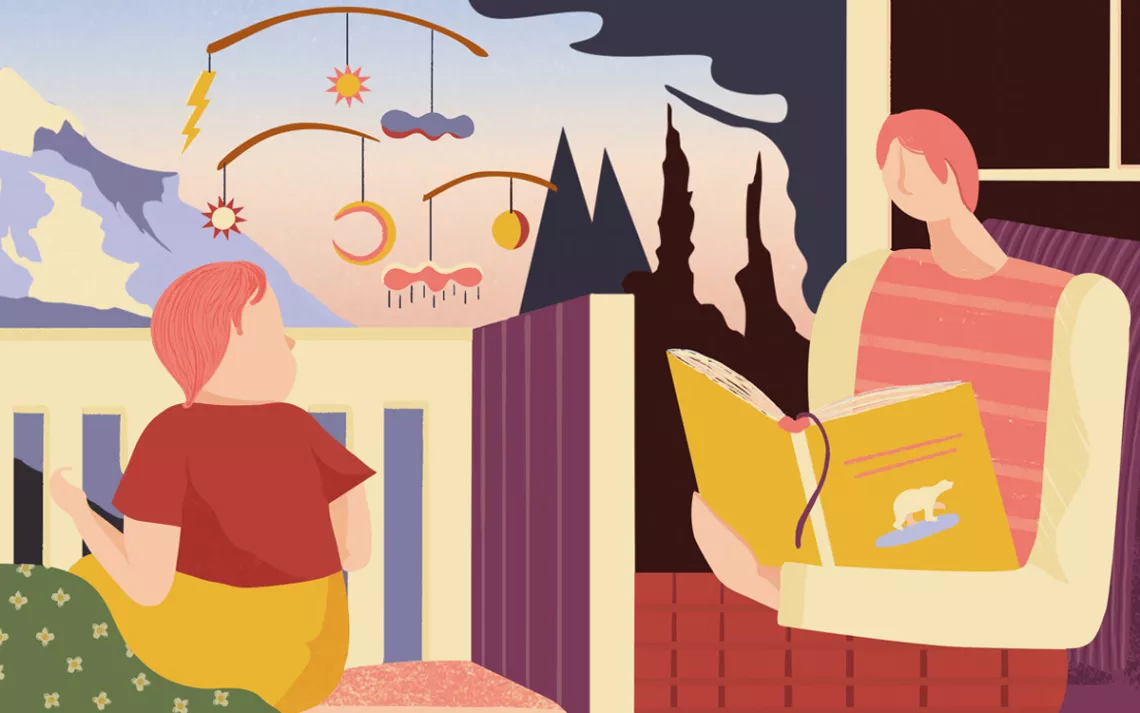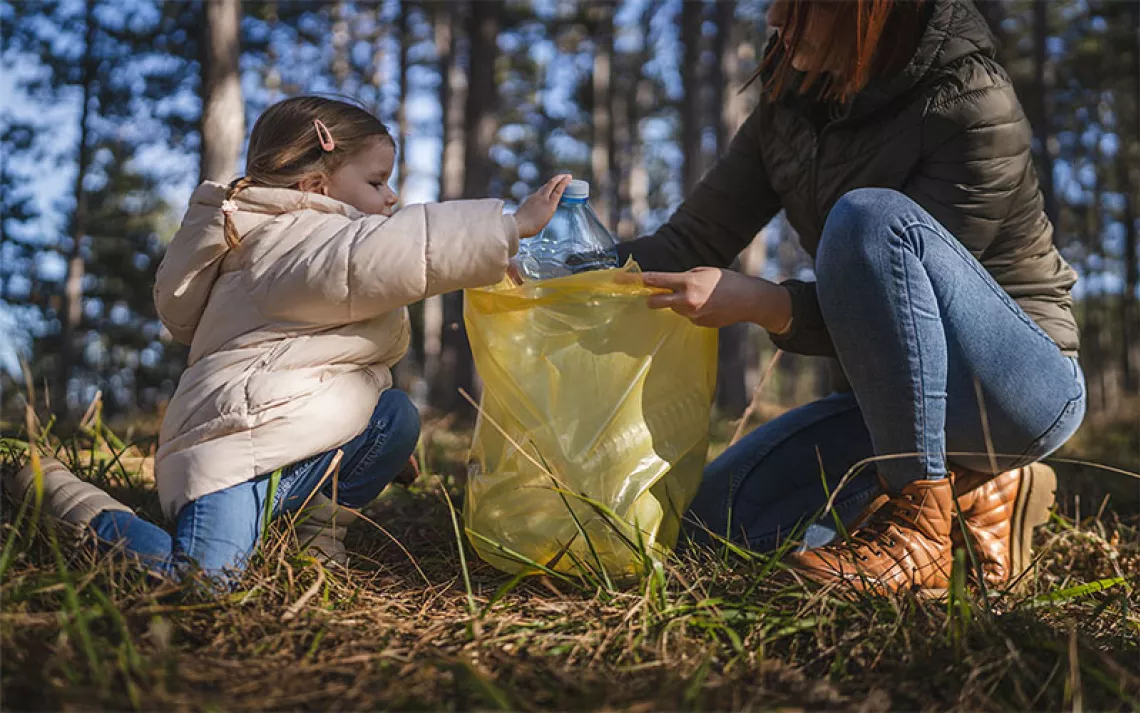How to Raise Children in a Constantly Warming World
A parent considers the planet his daughter will inherit

Illustration by Ellice Weaver
My four-month-old daughter had been napping peacefully as my wife and I hiked two miles to the vista overlooking the Nisqually Glacier at Mount Rainier National Park. Once we stopped, she woke up, stretched, and looked around. I wanted to point out to her how beautiful it was⎯the furrows of ice and the snowy peaks all around us. I couldn't help thinking that when she's old enough to take in all that beauty with me, there won't be nearly enough of it left⎯Nisqually, like nearly all glaciers around the globe, is rapidly retreating.
I planned our trip to Mount Rainier in part because of what climate change is doing to the planet my daughter will inherit. She clearly will not remember the trip, but looking over pictures or revisiting the same spot with her will be at least one way for us to talk about what's happening to our world. While many of the impacts of climate change are challenging to visualize, melting mountain glaciers are a clear sign of warming.
We arrived at Mount Rainier in late August and were greeted with perfect weather. We mixed hikes with naps and photography sessions with tummy time. We sang "She'll Be Coming 'Round the Mountain," loudly, as we toured the park. Our capstone challenge was the hike along the edge of the Nisqually Glacier to the aptly named Panorama Point.
After our stop at the glacier vista, we continued on the trail. Even though it was late summer, we were high enough that a small patch of snow crossed our path. I reached down and held snow out for my daughter so she could investigate it for the first time.
My wife and I have always loved the mountains. Whether we are backpacking to stunning vistas, skiing down sublime slopes, or just breathing in the crisp, clean air, mountains relax, excite, and inspire us. This appreciation of nature is a gift we hope to give to our daughter, even though she will not know the same snow-covered mountains that we have known.
We worry about what sort of new world and new difficulties our daughter will face. I'm 36 years old; in my lifetime, the average global temperature has risen by 1.2ºF. By the time my daughter is my age, it will have risen another 2.5ºF, according to predictions. Since I was in middle school, when I first learned about climate change, the global sea level has risen three inches. My daughter is likely to observe a rise of well over four feet. Global warming is expected to reduce the snow coverage on our beloved Sierra Nevada by as much as 75 percent in her lifetime.
Extreme weather events have cost the United States in excess of $1.5 trillion since I was born. My daughter's generation will need to spend many trillions more on damage from increasingly destructive storms. We will need to raise her to be able to cope not only with more extreme heat and weather but also with the uncertainty that rapid change will inevitably bring to her world.
I want to be able to tell her that my generation did all it could to limit the worst effects of climate change. I want to tell her that we did our part, that we didn't just pass on the problem to her, despite all we knew at the time. The crisis was not of her making; I hope we can show her how to be part of the solution. That process begins now, in sharing with her all that we love about the natural world, even as it changes so dramatically before our eyes.
When we reached Panorama Point, we could see hikers traversing the glacier in the distance. Snow was visible on the volcanic peaks to the south. My daughter let out a giggle as the wind brushed against her face. I smiled. For me, the only thing better than enjoying nature's beauty is the ability to share that feeling with her.
This article appeared in the March/April 2019 edition with the headline "Born in a Constantly Warming World."
 The Magazine of The Sierra Club
The Magazine of The Sierra Club



